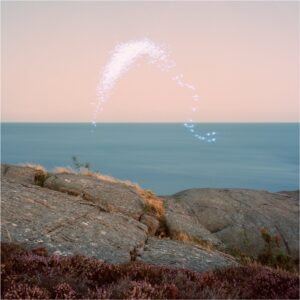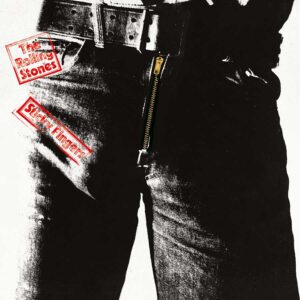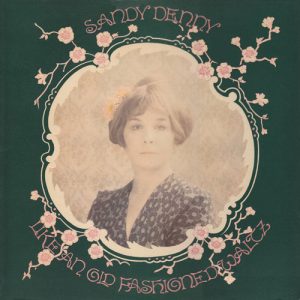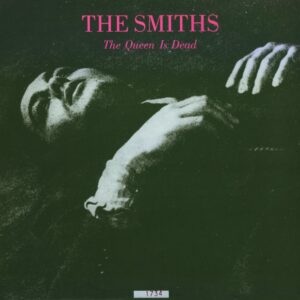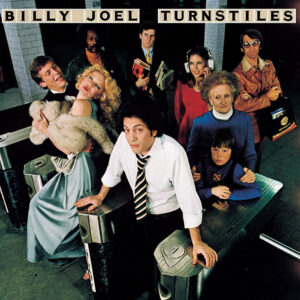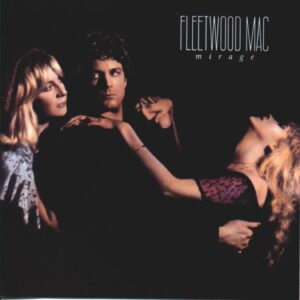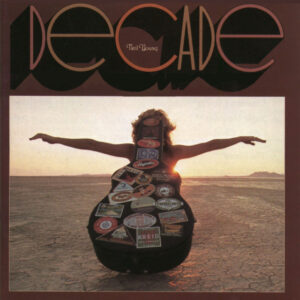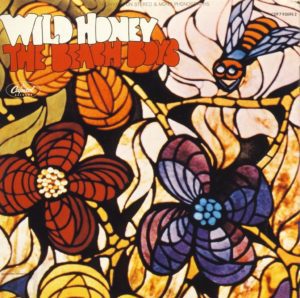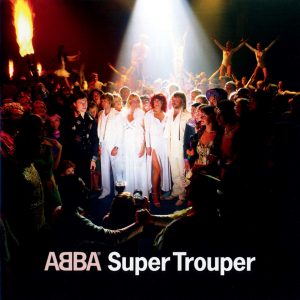
Marlon Williams grew up in Lyttleton, New Zealand. He toured Europe as a member of the choir of the Cathedral of the Blessed Sacrament and started playing guitar in high school. His band The Unfaithful Ways, formed with two friends and his school’s science teacher, were successful. They released the 2011 album Free Rein and played The Big Day Out. After The Unfaithful Ways, Williams collaborated with veteran country artist Delaney Davidson – Davidson also mentored Nadia Reid and Tami Neilson. Davidson and Williams released a series of albums entitled Sad But True: The Secret History of Country Music Songwriting.
Still only in his mid-20s, Williams struck out solo with his self-titled debut in 2015. A second album, 2018’s Make Way For Love, topped the NZ album chart. Williams made a cameo appearance in the remake of A Star Is Born, but he’s still a niche artist you’d expect NPR to rave over but enjoy middling sales.
Williams considered a career as a classical singer, and his vibrato-laden croon is immediately distinctive – like Angel Olsen, his vocal style feels anachronistic. His songwriting is unconventional and stays away from big choruses and clichés. I’m unsure if he’s reached his potential yet, but he’s enjoyable.
I saw Williams live in early 2021. With the world still struggling with Covid-19, he remarked that he was currently the biggest tour in the world, despite performing solo with a $150 acoustic guitar.
Marlon Williams Album Reviews
Unfaithful Ways – Free Rein

2011, not rated
I’ve briefly listened to the debut album from Williams’ high school band. It features a cover of Townes Van Zandt’s ‘Snow Don’t Fall’, a good reference point for Williams’ work.
Delaney Davidson and Marlon Williams

2012-2014
The duo of Delaney Davidson and Williams released three volumes of The Secret History of Country Music between 2012 and 2014. The second volume was only released at gigs and isn’t on Spotify. The volumes mixed originals like Williams’ ‘Minnie Dean’ (about an infamous NZ criminal) with covers like ‘Dark End of the Street’.
Marlon Williams
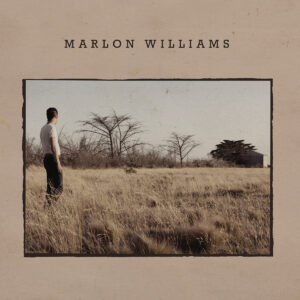
2015, 8/10
Already an experienced recording artist, Williams launched his solo career with 2015’s self-titled record. Although he’d already relocated to Australia, the recording sessions were produced by Ben Edwards in Lyttleton. Like everything Williams has done, Marlon Williams is concise – it clocks in at 34 minutes and nine songs. It starts strongly, but despite its short length, it tails off toward the end.
Opener ‘Hello Miss Lonesome’ provides a sprightly opening and recalls the rockabilly of early Elvis. Williams is excellent on the Gothic country of ‘Dark Child’ and ‘Lonely Side of Her’. ‘Silent Passage’ sounds like a Gene Clark song, with its mournful pace and imagery-laden lyrics, but it’s actually a cover of a 1974 song by Canada’s Bob Carpenter. I’m not as fond of ‘When I Was A Young Girl’, despite Williams’ impressive vocal range.
Marlon Williams is an effective solo debut, showcasing his unique vocals and unusual writing.
Make Way For Love

2018, 7.5/10
Williams’ first album was full of Gothic country, his second is a sad breakup album. The end of his relationship with fellow singer-songwriter Aldous Harding inspired a spate of songwriting – Williams wrote 15 songs after the breakup. While Williams is supported by his regular band The Yarra Benders, Make Way For Love was recorded with Noah Georgeson in Panoramic Studios, California. Williams had enjoyed Georgeson’s productions for Cate LeBon.
Make Way For Love is a stronger record than the debut in many ways – with the richer production it breaks Williams away from straight country. But at the same time, it’s difficult to rate an album with ‘Party Boy’ higher than the debut – Williams refused to play it on request when I saw him live. The tone is set though, by the sumptuous heartbreak of songs like ‘I Know A Jeweller’ and ‘Beautiful Dress’. Best of all is the duet with Harding on ‘Nobody Gets What They Want Anymore’, which won the APRA Silver Scroll for New Zealand songwriting – Harding would win the next year for ‘The Barrel’.
‘Party Boy’ aside, Make Way For Love is often gorgeous.
Plastic Bouquet (Kacy and Clayton and Marlon Williams)

2020, 7.5/10
On Plastic Bouquet, Williams collaborates with Kacy & Clayton. Kacy & Clayton are a duo of second cousins from Saskatoon – Williams contacted them after hearing them on Spotify. Like Williams, they bring a traditional country feel to Plastic Bouquet – Kacy Anderson’s voice resembles Emmylou Harris’ in its clear purity. The Canadian-New Zealand combination makes sense – Kacy told Bandcamp that “the three of us are just old-timey kids.”
There’s a cross-pollination of cultures on Plastic Bouquet – the title track is bluegrass while ‘Arahura’ reflects Williams’ Maori heritage. When I saw him live, Williams told the audience about the album’s lead single, ‘I Wonder Why’ – he was embarrassed by its straightforward nature and tried to excise it from the master tapes. Even more than most of Williams’ oeuvre, it sounds like a 1950s throwback, but it’s charming. It’s fun hearing Kacy and Williams duet on songs like ‘Light of Love’.
Williams’ music sometimes feels slight, as he favours short songs and simple arrangements. But Plastic Bouquet is a charming record that sounds like it beamed in from 60 years earlier.
My Boy

2022, 9/10
Marlon Williams carved out a niche for himself as a serious-minded country crooner, singing dark songs of heartbreak. On his third album, he reinvents himself. He embraces fun, drifting into camp territory on tracks like ‘My Boy’ and ‘Thinking of Nina’. Where his previous work gave little indication of his Maori heritage, he embraces it on My Boy. A Maori strum powers the title track, while he slips in some Maori language on ‘Don’t Go Back’. My Boy is Williams’ most incoherent, least unified record to date, but easily his best.
There’s a terrific interview where Williams name-checks Barry Gibb, Gene Clark, Duran Duran, and The Velvet Underground, an indication of the scattershot nature of My Boy. He’s best here at the upbeat songs, unlike anything else in his catalogue to date. The title track, as the lead single, indicated the change of focus. Even stronger is ‘Thinking of Nina’, where his croon projects ambiguity on a Bowie or Ferry scale. There are echoes of Williams’ previous work on the closing ‘Promises’, which utilises Williams’ fragile croon. But even the mellow songs are mostly different than before – ‘Soft Boys Make the Grade’ would have fitted a John Hughes soundtrack, while ‘Princes Walk’ blends pedal steel and effect-laden electric guitar.
My Boy is excellent, Williams adding some fun to his music.
Te Whare Tīwekaweka

2025, 7/10
Marlon Williams grew up in Lyttleton, New Zealand. He toured Europe as a member of the choir of the Cathedral of the Blessed Sacrament and started playing guitar in high school.
Williams often sounds like a throwback – his voice can drop into a rich croon, while his musical approach is often traditional and rootsy. On his fourth solo album, he explores his Māori heritage, singing entirely in te reo. Williams attended a te reo immersion preschool, but only spoke English at his primary school. Relearning as an adult, Te Whare Tīwekaweka is the first te reo album by a solo artist to top the New Zealand charts.
Much of Te Whare Tīwekaweka was recorded live in a hundred-year-old wooden structure, made from native timber, in Haast Pass. I’ve been to Haast and it’s remote – a four-and-a-half-hour drive from the nearest city. While Williams’ early music was often soaked in Americana, here it’s thoroughly New Zealand.
He’s best here when he adds some sophistication. The lead single, Kāhore He Manu E, features Lorde. It’s terrific, a tender ballad with the pair’s vocal charisma. It’s less exciting when Williams is in campfire singalong mode, like on ‘Whakamaettia Mai’ – it doesn’t use his rich, emotional voice.
Te Whare Tīwekaweka is Williams’ least musically satisfying album so far, but I’m glad he made it. He reconnected with his heritage, topping the New Zealand album charts as well.
Best Marlon Williams Songs
My Boy
Nobody Gets What They Want Anymore
Kāhore He Manu E (featuring Lorde)
Thinking of Nina
Lonely Side of Her
Beautiful Dress
Arahura
Soft Boys Make the Grade
Dark Child
I Wonder Why
Back to New Zealand album reviews…
Read about the discographies of musical acts from the 1960s to the present day. Browse this site's review archives or enjoy these random selections:
I add new blog posts to this website every week. Browse the archives or enjoy these random selections:
Subscribe
Subscribe to receive new posts from Aphoristic Album Reviews.





